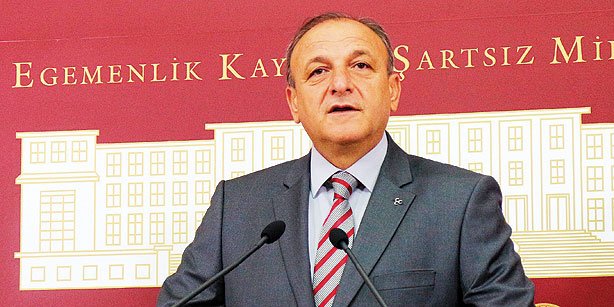MHP: Gov’t should not harass its citizens who open Turkish schools abroad

Date posted: April 11, 2014
Speaking to Samanyolu TV’s Ankara representative Abdullah Abdulkadiroğlu late on Thursday, Vural said that if the government does not protect its citizens who are involved in the Turkish schools — which are affiliated with the Hizmet movement, inspired by the teachings of US-based Turkish cleric Fethullah Gülen — but instead complains about them to international governments, questions need to be asked.
“Whom does this government serve if it asks international governments to take action against Turkish citizens?” Vural said, hinting that the Turkish government is in fact denigrating Turkey itself.
According to Vural, Turkish schools abroad are like a product a country might export and that by complaining about the institutions founded by Turkish citizens, the Turkish government is in fact disparaging Turkey. “The Turkish government is denouncing Turkish schools. Should a state take such a step?” Vural said, recalling that the fundamental goal of a state is to protect the human rights of its citizens.
The Turkish schools abroad were founded by Turkish entrepreneurs and function according to the regulations of those countries. Vural says that it is “unacceptable” if, when there is no problem between international governments and the Turkish schools, the Turkish government takes politically motivated action against them. Vural also pondered the cause of such enmity towards the Turkish schools.
The faith-based Hizmet movement administers a wide network of schools and more than 2,000 educational establishments in more than 140 countries around the world. These schools provide education to thousands of students and are well known for their achievements in the International Science Olympiads.
Speaking with Zaman daily, former deputy Prime Minister Ekrem Pakdemirli has said that the Hizmet-affiliated Turkish schools aboard operate within the framework of those countries’ laws. “Steps might be taken against the schools if they are acting inconsistently with the law. Otherwise, shutting down the schools would be wrong,” Pakdemirli said, adding that the schools introduce Turkey to people overseas.
“If the schools have made mistakes, the remedy is not to close them down but to help them to reform. Shutting down [education institutes] is not a cure. If the initiative to close down schools continues, so much the worse for Turkey internationally. We cannot show foreign people our positive side by ordering the closure of Turkish schools.”
The late Turkish Prime Minister Bülent Ecevit, who was not involved with the Hizmet movement, did not to allow anybody to criticize Turkish schools abroad, Pakdemirli said.
Pakdemirli also reported that Ecevit once said in Parliament that he would not “let anyone talk negatively about the Turkish schools [abroad]. These schools are a model of Turkey’s success overseas,” Pakdemirli concluded.
Ivory Coast deputy education minister praises Turkish schools
Jean Paul Kouo, deputy education minister of the Ivory Coast, has said that the Hizmet-affiliated Turkish schools in his county have contributed to the development of both socio-economic and cultural bilateral ties between his country and Turkey.
Paying an official visit to the Turkish province of Isparta, Kouo held a meeting with Isparta-based Association of Iranian Industrialists and Businessmen (ISİAD) head Özcan Pınarcı and Altınbaşak Private Education Institutes coordinator Zek Yağmur. Alongside Pınarcı and Yağmur, the minister visited İsparta mayor Yusuf Ziya Günaydın.
As the government official responsible for the Turkish schools in the Ivory Coast, Kouo spoke about the success of the Hizmet-affiliated Turkish schools in his country and how they had helped to develop joint projects for cooperation in different fields between the two countries.
Source: Todays Zaman , April 11, 2014
Tags: Education | Freedoms | Hizmet-inspired schools | Turkey |
























